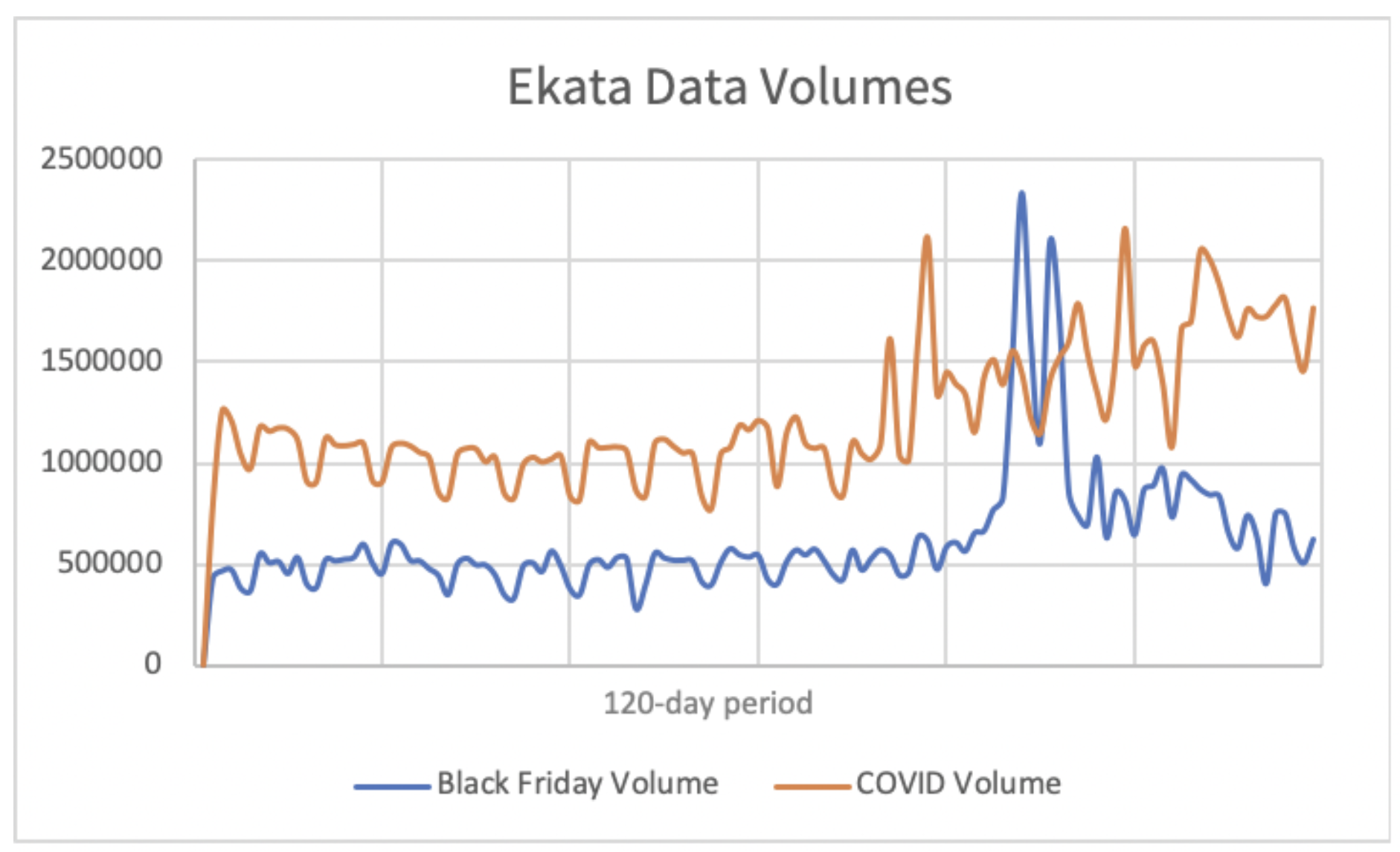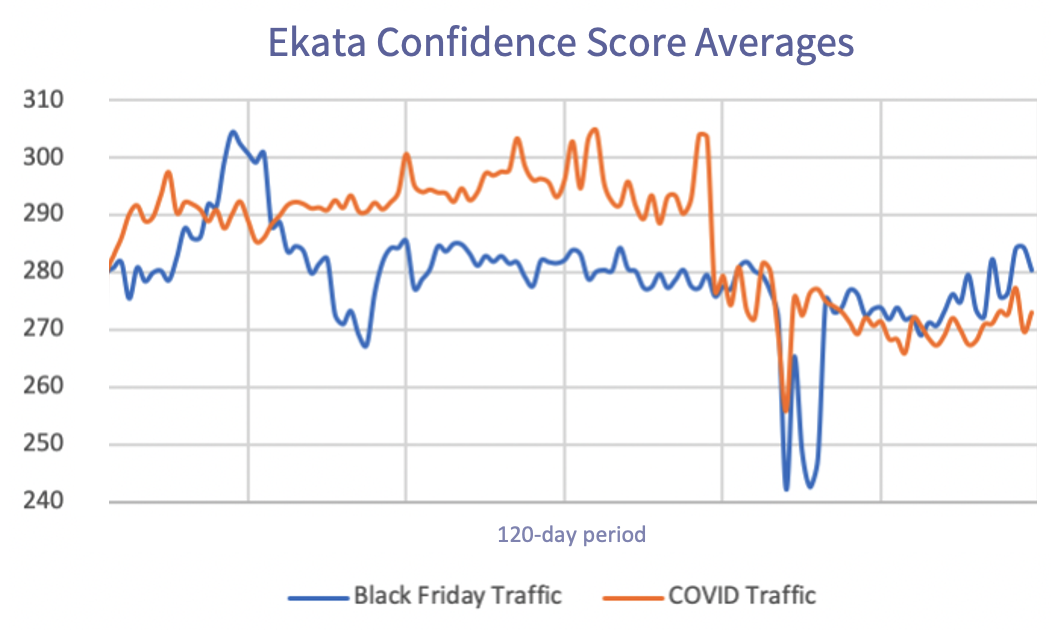In our last blog, Assessing Risk in Uncharted Times, we looked at Ekata Confidence Scores and leading indicators for fraud such as email first seen data. These indicators are helpful in understanding and identifying a good customer versus fraud. As we conclude our blog series on COVID-19 and the data impacts, we want to provide you some tangible ways to apply these insights to your business and assess customer risk.
Identifying Patterns
In previous blogs in this series, we looked at similarities found in data query volumes and Confidence Score to those of the Black Friday through Christmas patterns:
As we previously discussed, lower scores mean lower lower risk. In the charts below, volume is up and good customers are flooding online shopping, masking the fraud.


Leveraging Patterns
Despite change and uncertainty, you can add new customers and successfully adjust to the changes in volume and activity with thought and planning. COVID-19 has presented us with new and unprecedented challenges, but we can identify trends to help make thoughtful and informed decisions. How does your business change practices during holiday periods or peak seasonal times? Which of those actions should you consider replicating now?
Review your rules and consider making adjustments. Should your fraud filters be eased up slightly to let more good customers in, or tightened down to block increased fraud? What data do you use to make those decisions?
Consider adding friction at a different or lower threshold. You can consider adding more friction to keep fraudsters out. The key is finding the right balance between continuing to engage and not drive away good customers, while holding fraudsters at bay.
Decide which shoppers go through manual review. Leveraging a manual review team is a great way to manage risk. Employees can look through the data, identify any anomalies, and weigh the benefits and potential risks. Manual review agents are familiar with your company’s risk profile and understand the thresholds set by your company.
Key Takeaways
Without a doubt, Covid-19 is creating a change in online consumer’s behavior. While we have reviewed there are similarities to the holiday season, there are also anomalies that should be considered for your business and your shoppers. Models are challenging to adjust as there is no training data to be leveraged. Rules and decisioning systems can be adjusted to deal with changes and surges in online shopping volumes. It’s important to weigh how adding friction can help manage fraud & customer risk and consider how you can leverage manual review teams as you make adjustments and learn about the new environment.
To learn more about the Ekata APIs and Confidence Score, please contact us!



